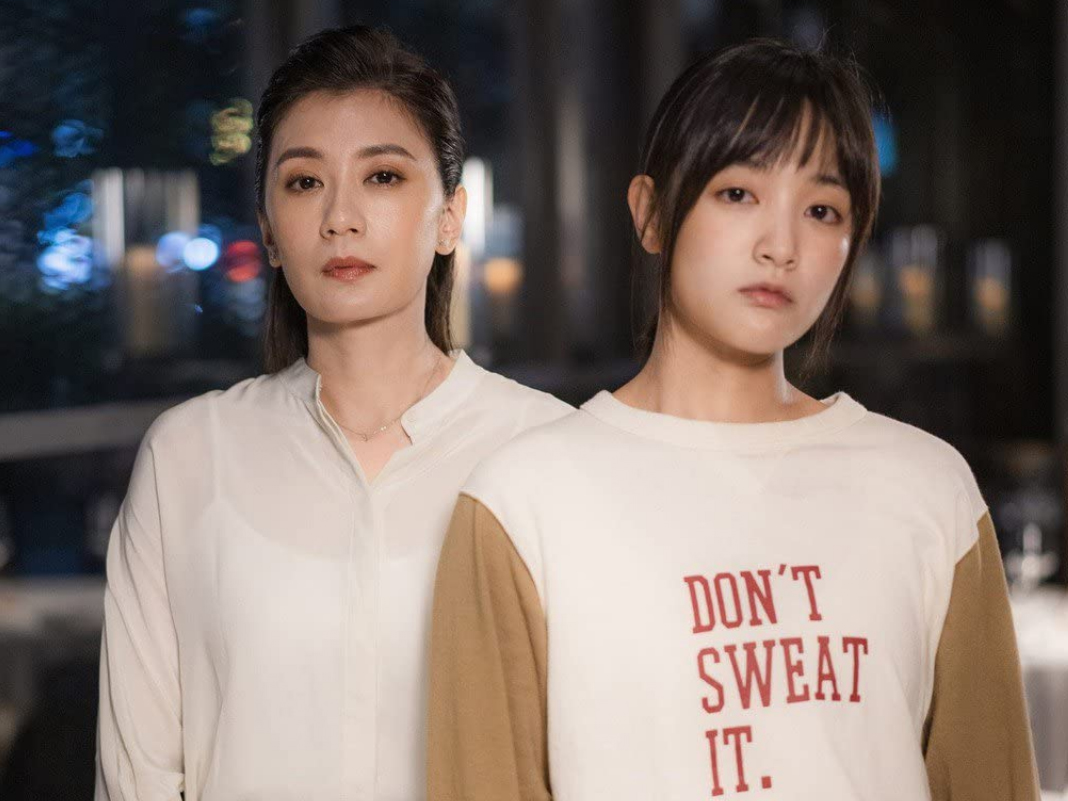
- Golden Globe Awards
The Falls (Taiwan)
Taiwanese director Chung Mong-hong attracted a lot of attention last year with his bold familial drama A Sun. This year, he further establishes himself as one of the most noteworthy international filmmakers with The Falls, an unusual exploration of a mother-daughter relationship hinged on the predicament of mental illness coupled with the pandemic lockdown. The film premiered at the Venice Film Festival and had its North American premiere at the Toronto Film Festival.
The story unfolds as the teenaged Xiao Jing (Gingle Wang) is forced to stay home after a Covid-19 outbreak at school. Her mother, Pin-Wen (Alyssa Chia), is asked to take a leave from work. The two women find themselves in the claustrophobic environment of their upper-class apartment. This oppressive atmosphere is intensified with the eerie blue light generated by sun rays filtering through a blue tarp surrounding the whole building, which is undergoing renovations. “The color blue also makes it feel like some kind of illusionary quality that you cannot escape from,” the director said to Variety’s Peter Debruge in a recent video interview.
This heightened isolation becomes the platform on which a complicated relationship unravels. Interestingly, the director chose to reverse the usual order of business, where the parent takes care of the child and explores the mother’s mental illness through the daughter’s point of view. Yet, the cold hue combined with the house isolation and the pandemic – even psychosis – seem to turn into overlapping layers concealing the core of the creator’s purpose.
“I would like to explore what is lost between humans … the loss of trust,” the director mentioned in the same interview. This time, though, he opted to get to the kernel of truth by using a different strategy. While in his previous films he had employed motifs of masculine violence, absurdity, fast pacing and aggressive camerawork, this time around he went for a quieter, observational and respectful approach. “In the past, I thought if you put too much compassion into a film, it would be a compromise. I always believed life is brutal, so, if I use brutality of brutal things in the films, I think it’s more realistic and convincing,” he explained to Debruge. “However, the world has encountered a lot over the past two years, including the pandemic … We are seeing a lot of challenges around the world, like housing price hikes or wage inequality, unemployment. In the past, I thought Taiwan was a safe place. I thought that, in Taiwan, people had at least job security, but that job security is now gone.”
The Falls captures the essence of our unprecedented collective experience highlighted by the pandemic. The film can be taken as a sign of our time, and the result of agelong environmental and interpersonal abuse. Shedding the relentless and punitive lessons of violence and cruelty, Chung gravitates, now more than ever in his filmography, toward the need for healing. When all the wrappings of the story are cleared out, what remains is the reciprocal love of mother and daughter, naked and intact.